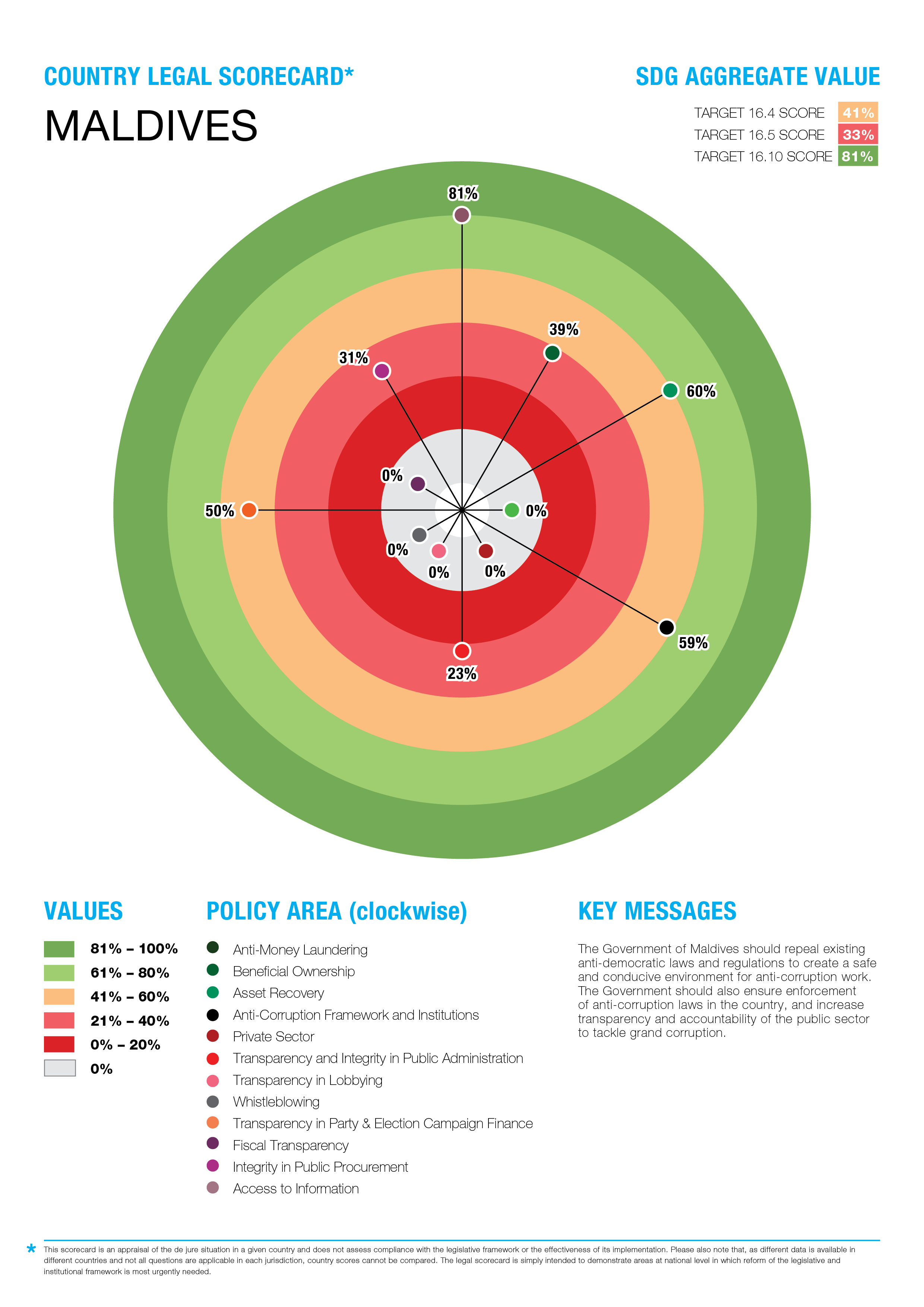A report by Transparency International (TI) shows that Maldives fails on key points in Sustainable Development Goal (SDG) 16. In the scorecard illustrating the report (to be launched shortly and of which 11 countries are included) Maldives scored: just 41% for Target 16.4 (which calls for significant reduction in illicit financial flows, strengthen the recovery and return of stolen assets and combat all forms of organized crime); a mere 33% for Target 16.5 (calling for substantial reduction in corruption and bribery in all their forms); and 81% for Target 16.10 (calling to ensure public access to information in accordance with national legislation and international agreements)
Although it shows an encouraging score on some of the goals of the Sustainable Development Goals (SDGs), particularly those arising from access to information, Maldives fails on key issues. Much work needs to be done on asset recovery and fiscal transparency. Another worrying issue is the complete lack of protection for whistleblowers in the absence of a dedicated law and monitoring mechanisms that can insure support and safeguards for those who take the lead in alerting authorities and the public to corrupt activities. Transparency and integrity in public administration and public procurement is also far from satisfactory.
The Maldives National Progress Report submitted by the Government for the 2017 Voluntary National Review (VNR) at the High Level Political Forum on Sustainable Development Goals (SDG) was published in June 2017. Referring to SDG 16, the report states that the Government of Maldives is “committed towards creating effective, accountable and transparent institutions at all levels.”
However, Maldives has recently made national and global headlines for how corruption is embedded and systemic in the country. The current anti-corruption landscape of the country is marred by lack of enforcement of existing laws, and lack of public awareness on corruption and political accountability. To eliminate corruption in Maldives and garner public confidence in the governance system, there needs to be genuine political will to fully enforce anti-corruption laws to stop the impunity enjoyed by the corrupt and to hold corrupt politicians accountable.
The scores are out of 100 show the strength (or weakness) of the legal framework that is currently in place in each area of the policy areas covered, based on the parallel reporting methodology. The scores are plotted on the bands as indicated in the key. There is a list of policy areas covered beneath the graphic and the score for each area is placed within a band depending on the score.
The scores read clockwise, starting with the first listed policy area between noon and one o’clock. In an ideal world, the scores for all policy areas would sit in the outer-most green band.
For instance, the scorecard starts with anti-money laundering legislation between noon and one o’clock. Maldives is found to have a generally good legal framework for anti-money laundering (81 per cent), largely in line with international best practice, although there is room for improvement.
Progressing clockwise around the graphic, the next area is beneficial ownership, which scores 39 per cent, indicating considerable room for improvement. The remaining percentage scores relating to each policy area are displayed in clockwise order around the rest of the graphic.
Disclaimer
Please note that the scorecards are an appraisal of the de jure situation and do not assess compliance with the legislative framework or the effectiveness of its implementation. The legal scorecard is intended to demonstrate areas at national level in which reform of the legislative and institutional framework is most urgently needed.
Read more on Sustainable Development Goals here.
Read more on Goal 16 and its targets here.
